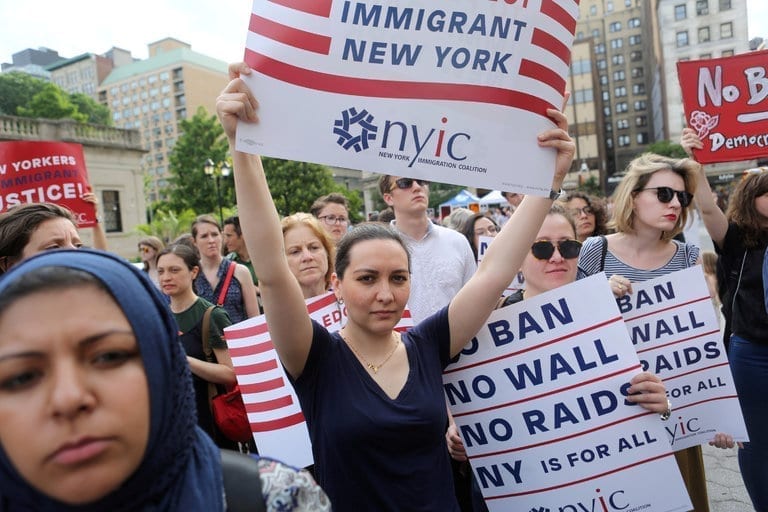A Hawaii judge chipped away at Donald Trump’s signature travel ban on Thursday, ruling that overseas relatives of American citizens and residents would be allowed to circumvent the president’s signature immigration action.
Midway through June, the Supreme Court allowed part of the contentious executive order to take effect, limiting migration from six Muslim-majority countries to individuals with ‘bona fide’ ties to the United States. While the case isn’t expected to be heard by the justices until autumn, the opinion gave the Trump administration a rare cause for celebration.
Issued Thursday, the order penned by U.S. District Judge Derrick Watson plied some concessions from the Supreme Court’s decision.
In addition to the relatives of people now in the United States, the administration is required to grant entry to refugees who have an outstanding commitment from U.S.-based resettlement agencies.
Watson’s ruling should give hope to opponents of the travel ban, who have been hoping to widen the scope of permissible migrants under the Supreme Court’s modestly vague ruling.
Since the justices didn’t clarify what constituted a ‘bona fide’ relationship, the Trump administration implemented policy which excluded the foreign national grandparents and grandchildren of U.S. citizens and residents.
Politico reports that the White House also adopted a contentious tone on refugees, arguing that a mere connection or commitment from a resettlement agency wasn’t grounds for those fleeing poverty and war-torn countries to seek a better life abroad.

Watson took issue with the government’s interpretation of the Supreme Court ruling, calling into question their understanding of the English language.
“Common sense, for instance, dictates that close family members be defined to include grandparents,” Watson wrote. “Indeed, grandparents are the epitome of close family members. That simply cannot be.”
On top of that, he laid down an argument which detailed how an outstanding commitment from a resettlement agency can and should constitute a ‘bona fide’ relationship with an individual or entity in the United States.
“It is formal, it is a documented contract, it is binding, it triggers responsibilities and obligations, including compensation, it is issued specific to an individual refugee only when that refugee has been approved for entry by the Department of Homeland Security, and it is issued in the ordinary course, and historically has been for decades,” he explained.
“Bona fide does not get any more bona fide than that.”
A State Department spokeperson said Friday morning that officials were reviewing the decisions and “will be in consultation with the Justice Department to ensure immediate implementation.”
Sources
Grandparents Win Reprieve from Trump Travel Ban in Federal Court
Hawaii judge allows grandparents and others to bypass travel ban


Join the conversation!